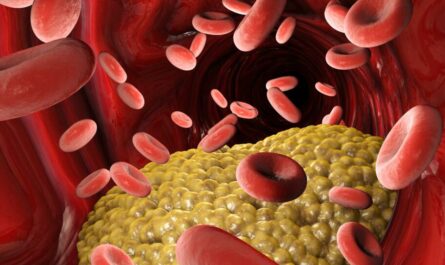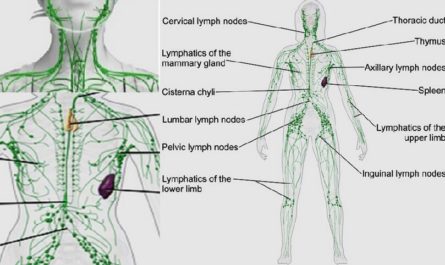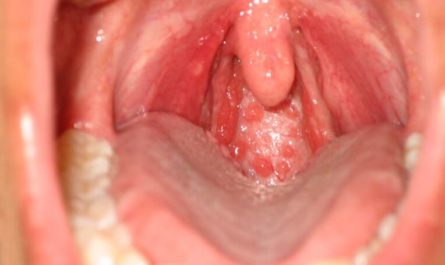A deep cough that originates in the chest can be a distressing and persistent symptom. It may be accompanied by other symptoms such as chest pain, shortness of breath, or the production of mucus. While a cough is a natural reflex that helps clear the airways of irritants and secretions, a deep cough that lingers can be a sign of an underlying health condition. In this article, we’ll explore 14 common causes of deep cough in the chest, their associated symptoms, and when it’s crucial to seek medical attention.
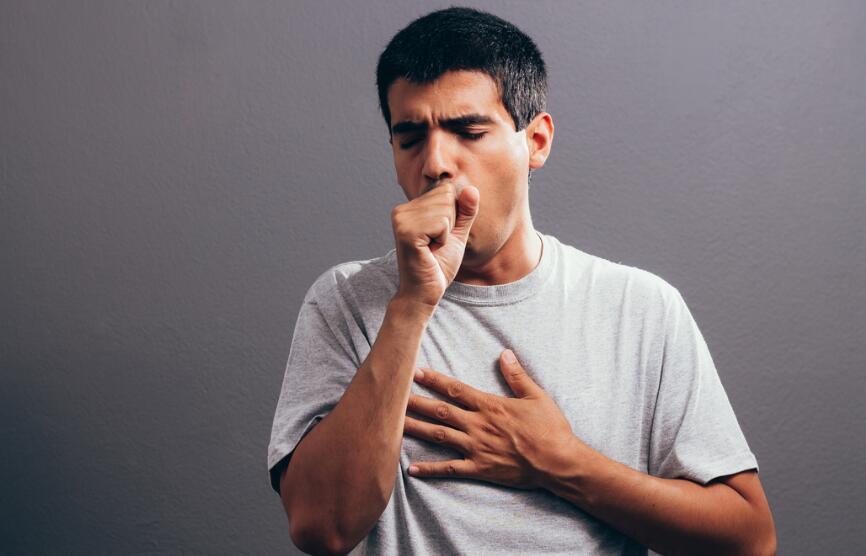
14 Common Causes of Deep Cough in the Chest
1. Acute Bronchitis
Acute bronchitis, also known as a chest cold, is a common cause of deep cough in the chest. It occurs when the airways of the lungs become inflamed and produce excess mucus. Symptoms of acute bronchitis may include:
- Coughing with or without mucus production
- Chest soreness
- Fatigue
- Mild headache and body aches
- Sore throat
Acute bronchitis is usually caused by a viral infection and typically resolves on its own within 3 weeks. Antibiotics are not recommended for treating acute bronchitis unless a bacterial infection is suspected.
Treatment usually involves rest, hydration, and over-the-counter cough suppressants or expectorants to help manage symptoms.
In some cases, acute bronchitis can lead to more serious complications such as pneumonia, especially in older adults, young children, or people with weakened immune systems.
If your cough persists for more than 3 weeks or is accompanied by high fever or shortness of breath, it’s important to see a doctor for further evaluation.
2. Pneumonia
Pneumonia is a more serious infection of the lungs that can cause a deep, persistent cough. It occurs when the air sacs in the lungs become inflamed and filled with fluid or pus. Other symptoms of pneumonia may include:
- High fever and chills
- Chest pain that worsens with breathing or coughing
- Shortness of breath
- Fatigue
- Nausea and vomiting
Pneumonia can be caused by bacteria, viruses, or fungi, and treatment depends on the specific cause. Bacterial pneumonia is usually treated with antibiotics. Viral pneumonia may require supportive care such as rest, hydration, and over-the-counter pain relievers. In severe cases, hospitalization may be necessary to provide oxygen therapy, intravenous fluids, or other supportive measures.
If left untreated, pneumonia can lead to serious complications, so it’s important to seek medical attention if you suspect you may have pneumonia. Early diagnosis and treatment can help prevent the infection from spreading and reduce the risk of complications.
3. Chronic Obstructive Pulmonary Disease (COPD)
Chronic Obstructive Pulmonary Disease (COPD) is a group of lung diseases that cause airflow blockage and breathing-related problems. The two main types of COPD are chronic bronchitis and emphysema. Symptoms of COPD may include:
- Chronic cough with mucus production
- Shortness of breath, especially with physical activity
- Wheezing
- Chest tightness
COPD is most commonly caused by long-term exposure to irritants such as cigarette smoke, air pollution, or chemical fumes. Over time, these irritants damage the airways and alveoli (tiny air sacs) in the lungs. This makes it harder to breathe. COPD is a progressive disease, meaning it gets worse over time, and there is no cure.
Treatment for COPD may include bronchodilators to help open the airways and inhaled steroids to reduce inflammation. Quitting smoking is the most important step in preventing further damage to the lungs.
In advanced stages of COPD, oxygen therapy may be necessary to help maintain adequate blood oxygen levels.
4. Asthma
Asthma is a chronic lung condition that causes inflammation and narrowing of the airways. It can cause a deep, persistent cough, especially at night or early in the morning. Other symptoms of asthma may include:
- Wheezing
- Shortness of breath
- Chest tightness
- Difficulty sleeping due to coughing or wheezing
Asthma can be triggered by a variety of factors, including allergens, respiratory infections, exercise, or cold air. When exposed to a trigger, the airways become inflamed and narrow. This makes it difficult to breathe. Asthma symptoms can range from mild to severe and can be life-threatening in some cases.
Asthma treatment typically involves the use of inhaled bronchodilators and corticosteroids to control symptoms and prevent attacks. Bronchodilators help relax and open the airways, while corticosteroids reduce inflammation in the lungs.
In addition to medication, lifestyle changes such as maintaining a healthy weight, exercising regularly, and avoiding tobacco smoke can help improve asthma control.

5. Gastroesophageal Reflux Disease (GERD)
Gastroesophageal Reflux Disease (GERD) is a chronic digestive disorder that occurs when stomach acid flows back into the esophagus. This can cause irritation and inflammation of the esophagus, leading to a deep, persistent cough. Other symptoms of GERD may include:
- Heartburn
- Chest pain
- Difficulty swallowing
- Regurgitation of food or sour liquid
- A sensation of a lump in the throat
GERD occurs when the lower esophageal sphincter (LES) becomes weak or relaxes inappropriately. This allows stomach acid to flow back into the esophagus, causing irritation and inflammation. Over time, this can lead to more serious complications such as esophageal ulcers or Barrett’s esophagus.
Treatment for GERD may include lifestyle changes such as avoiding trigger foods, and losing weight as well as medications such as antacids and proton pump inhibitors. Antacids help neutralize stomach acid, while proton pump inhibitors reduce the amount of acid produced by the stomach.
6. Postnasal Drip
Postnasal drip occurs when excess mucus from the sinuses drips down the back of the throat. This can cause irritation and a persistent cough. This can be caused by a variety of factors, including:
- Allergies
- Sinus infections
- Cold or flu
- Changes in weather or temperature
Other symptoms of postnasal drip may include a runny nose, sore throat, and a feeling of fullness in the ears. Postnasal drip can also cause bad breath and a hoarse voice.
Treatment for postnasal drip may include over-the-counter decongestants, antihistamines, or nasal sprays, as well as staying hydrated. Decongestants help reduce swelling in the nasal passages, while antihistamines block the effects of histamine. Nasal sprays can help flush out excess mucus and reduce inflammation in the sinuses.
In some cases, postnasal drip may be a sign of a more serious condition such as sinusitis or nasal polyps. If symptoms persist or are accompanied by fever, facial pain, or difficulty breathing, it’s important to see a doctor.
7. Whooping Cough (Pertussis)
Whooping cough, also known as pertussis, is a highly contagious respiratory tract infection that can cause a deep, violent cough. The cough is often followed by a high-pitched “whoop” sound as the person tries to catch their breath. Other symptoms of whooping cough may include:
- Runny nose
- Low-grade fever
- Mild cough that gradually becomes more severe
Whooping cough is caused by the bacterium Bordetella pertussis and is spread through respiratory droplets when an infected person coughs or sneezes. It can affect people of all ages but is most dangerous for infants and young children.
Treatment for whooping cough typically involves antibiotics to prevent the spread of the infection to others. Antibiotics are most effective when started early in the course of the illness, ideally within the first 1-2 weeks of symptoms.
Supportive care such as rest, hydration, and over-the-counter cough suppressants may also be recommended to help manage symptoms.
Prevention of whooping cough is important, especially for infants and young children who are at highest risk for complications.
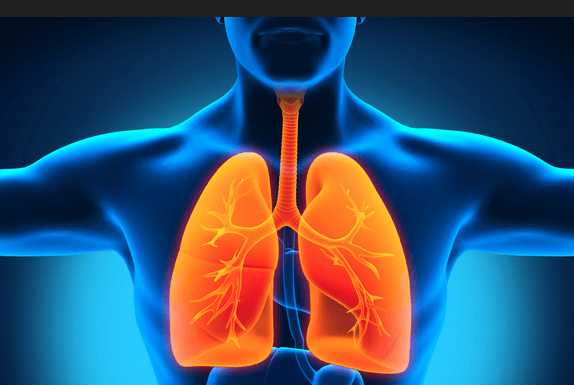
8. Lung Cancer
In rare cases, a deep, persistent cough may be a sign of lung cancer. Other symptoms of lung cancer may include:
- Coughing up blood or rust-colored sputum
- Chest pain that worsens with deep breathing, coughing, or laughing
- Hoarseness
- Weight loss and loss of appetite
- Shortness of breath
- Feeling tired or weak
Lung cancer is the leading cause of cancer death worldwide and is most commonly caused by smoking. Other risk factors include exposure to secondhand smoke, radon gas, asbestos, and air pollution.
If you have a history of smoking and develop a persistent cough, it’s important to see a doctor for an evaluation. Diagnostic tests such as a chest X-ray, CT scan, or biopsy may be recommended to determine if lung cancer is present.
Treatment for lung cancer depends on the stage and type of cancer but may include surgery, radiation therapy, chemotherapy, or targeted therapy. Early detection and treatment of lung cancer can significantly improve outcomes.
9. Tuberculosis
Tuberculosis (TB) is a serious bacterial infection that primarily affects the lungs. It can cause a persistent cough that lasts for more than 3 weeks. Other symptoms of TB may include:
- Fever and chills
- Night sweats
- Fatigue
- Unintended weight loss
TB is caused by the bacterium Mycobacterium tuberculosis and is spread through the air when an infected person coughs, sneezes or speaks. It can affect people of all ages but is most common in areas with high rates of poverty, malnutrition, and HIV infection.
Treatment for TB involves a combination of antibiotics taken for several months to ensure the infection is fully cleared.
Prevention of TB includes vaccination with the Bacille Calmette-Guerin (BCG) vaccine, which is recommended for infants in areas with high rates of TB.
10. Cystic Fibrosis
Cystic fibrosis is a genetic disorder that causes thick, sticky mucus to build up in the lungs and digestive system. This can lead to a persistent, deep cough with the production of thick mucus. Other symptoms of cystic fibrosis may include:
- Wheezing or shortness of breath
- Frequent lung infections
- Poor growth and weight gain
- Greasy, bulky stools
Cystic fibrosis is caused by a mutation in the cystic fibrosis transmembrane conductance regulator (CFTR) gene. This regulates the production of mucus, sweat, and digestive fluids. The mutation causes these fluids to become thick and sticky, leading to blockages and infections in the lungs and digestive system.
Cystic fibrosis is typically diagnosed in childhood. Treatment involves a combination of medications, airway clearance techniques, and nutritional support. Medications may include antibiotics to treat lung infections and bronchodilators.
Airway clearance techniques such as chest physical therapy and the use of oscillating devices can help loosen and remove mucus from the lungs.
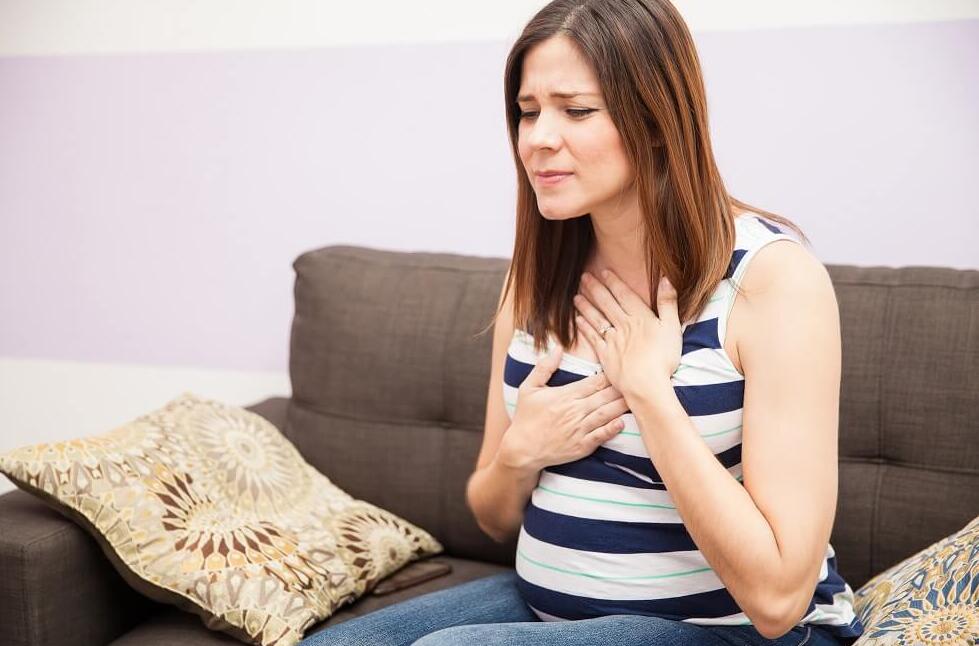
11. Heart Failure
In some cases, a deep cough may be a sign of heart failure. When the heart is not pumping efficiently, fluid can build up in the lungs, causing a condition called pulmonary edema. Symptoms of heart failure may include:
- Persistent coughing or wheezing
- Shortness of breath, especially when lying down
- Fatigue and weakness
- Swelling in the feet, ankles, or legs
- Rapid or irregular heartbeat
Heart failure occurs when the heart is unable to pump enough blood to meet the body’s needs. This can be caused by a variety of factors, including coronary artery disease, high blood pressure, valve disorders, and cardiomyopathy.
Treatment for heart failure may include medications to improve heart function, reduce fluid buildup, and control symptoms. Medications may include diuretics to remove excess fluid, ACE inhibitors, or ARBs to relax blood vessels. This can reduce strain on the heart, and beta blockers to slow the heart rate and reduce the workload on the heart.
12. Pulmonary Embolism
A pulmonary embolism is a serious condition that occurs when a blood clot becomes lodged in the lungs. It can cause sudden chest pain and shortness of breath, as well as a deep cough that may produce blood-streaked mucus. Other symptoms of a pulmonary embolism may include:
- Rapid or irregular heartbeat
- Dizziness or lightheadedness
- Excessive sweating
- Clammy or bluish skin
A pulmonary embolism occurs when a blood clot, usually from the deep veins of the leg, breaks off and travels through the bloodstream to the lungs. Risk factors for pulmonary embolism include prolonged immobility, surgery, cancer, pregnancy, and certain inherited blood clotting disorders.
A pulmonary embolism is a medical emergency that requires immediate treatment with blood thinners and supportive care. Blood thinners such as heparin or warfarin help prevent the clot from getting larger and reduce the risk of new clots forming. In severe cases, thrombolytic therapy may be used to dissolve the clot.
13. Sarcoidosis
Sarcoidosis is a rare inflammatory disease that can affect multiple organs in the body, most commonly the lungs and lymph nodes. It can cause a persistent dry cough, as well as other symptoms such as:
- Shortness of breath
- Chest pain
- Fatigue
- Night sweats
- Unexplained weight loss
The exact cause of sarcoidosis is unknown, but it is thought to be related to an abnormal immune response. In sarcoidosis, clusters of inflammatory cells called granulomas form in various organs, leading to inflammation and scarring.
Treatment for sarcoidosis depends on the severity and location of the disease but may include corticosteroids to reduce inflammation, as well as medications to manage specific symptoms. In mild cases, no treatment may be necessary, and the disease may resolve on its own.
In more severe cases, treatment with corticosteroids such as prednisone may be necessary to control inflammation and prevent organ damage. Other immunosuppressive medications such as methotrexate or azathioprine may also be used in cases that do not respond to corticosteroids.
14. COVID-19
COVID-19, the disease caused by the novel coronavirus SARS-CoV-2, can cause a range of respiratory symptoms, including a deep cough. Other symptoms of COVID-19 may include:
- Fever and chills
- Shortness of breath or difficulty breathing
- Fatigue
- Muscle or body aches
- Headache
- Loss of taste or smell
- Sore throat
- Congestion or runny nose
- Nausea or vomiting
- Diarrhea
COVID-19 is a highly contagious respiratory illness that is spread through respiratory droplets when an infected person coughs, sneezes, or talks. It can cause mild to severe illness and can be particularly dangerous for older adults and people with underlying health conditions.
If you suspect you may have COVID-19, it’s important to self-isolate and contact your healthcare provider for guidance on testing and treatment. In severe cases, hospitalization may be necessary to provide oxygen therapy, mechanical ventilation, or other supportive measures.
Prevention of COVID-19 includes measures such as washing hands frequently and getting vaccinated when eligible. Vaccines are highly effective at preventing severe illness and death from COVID-19. They are an important tool in controlling the spread of the virus.
When to Seek Medical Attention?
While a deep cough can often be managed at home with self-care measures such as rest, hydration, and over-the-counter cough suppressants, there are certain situations in which it’s important to seek medical attention. These include:
- Coughing up blood or bloody mucus
- Shortness of breath or difficulty breathing
- Chest pain or tightness
- High fever (over 100.4°F or 38°C)
- Cough that lasts more than 3 weeks
- Unexplained weight loss
- Swelling in the feet, ankles, or legs
- Coughing that interferes with sleep or daily activities
If you experience any of these symptoms, it’s important to contact your healthcare provider for further evaluation and treatment.
In some cases, a deep cough may be a sign of a serious or life-threatening condition such as a pulmonary embolism or lung cancer. If you experience sudden shortness of breath, chest pain, or coughing up blood, seek emergency medical attention immediately.

